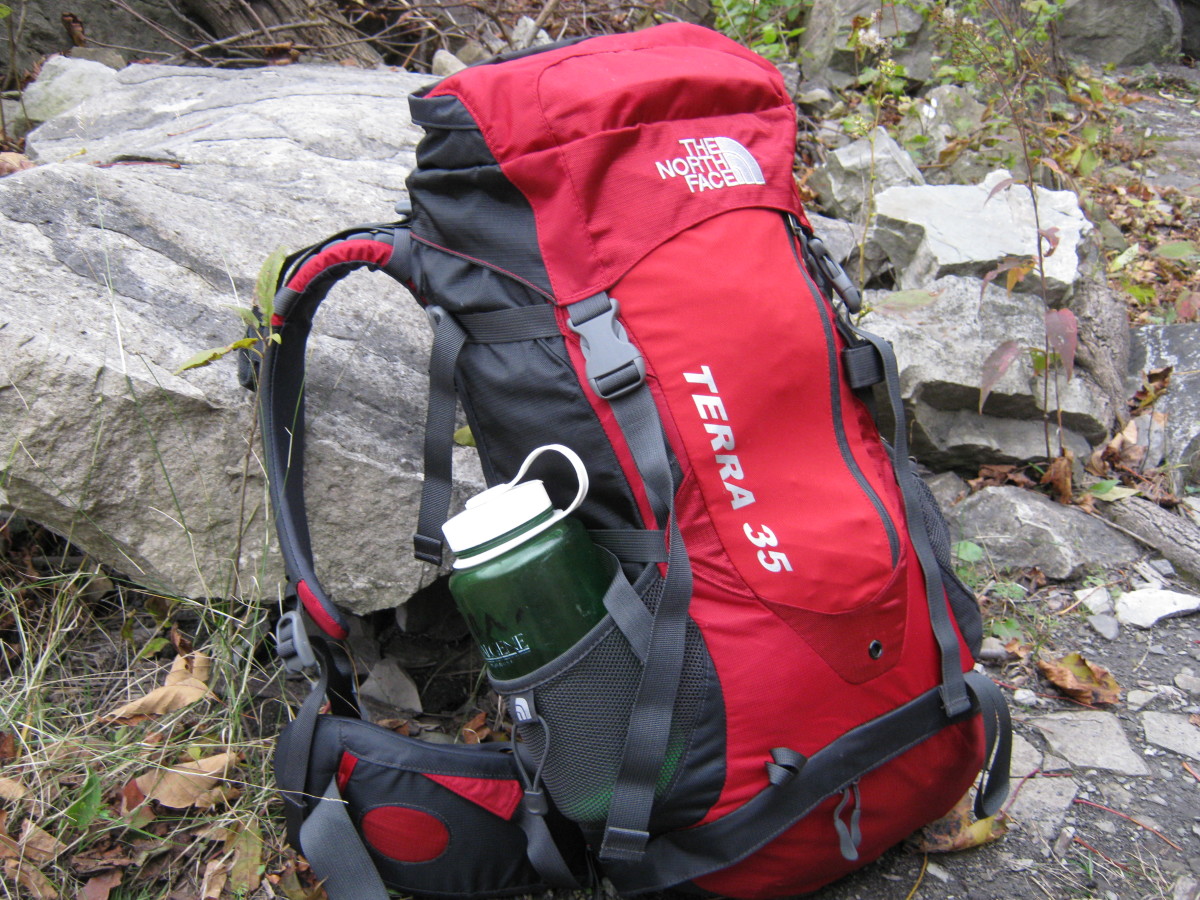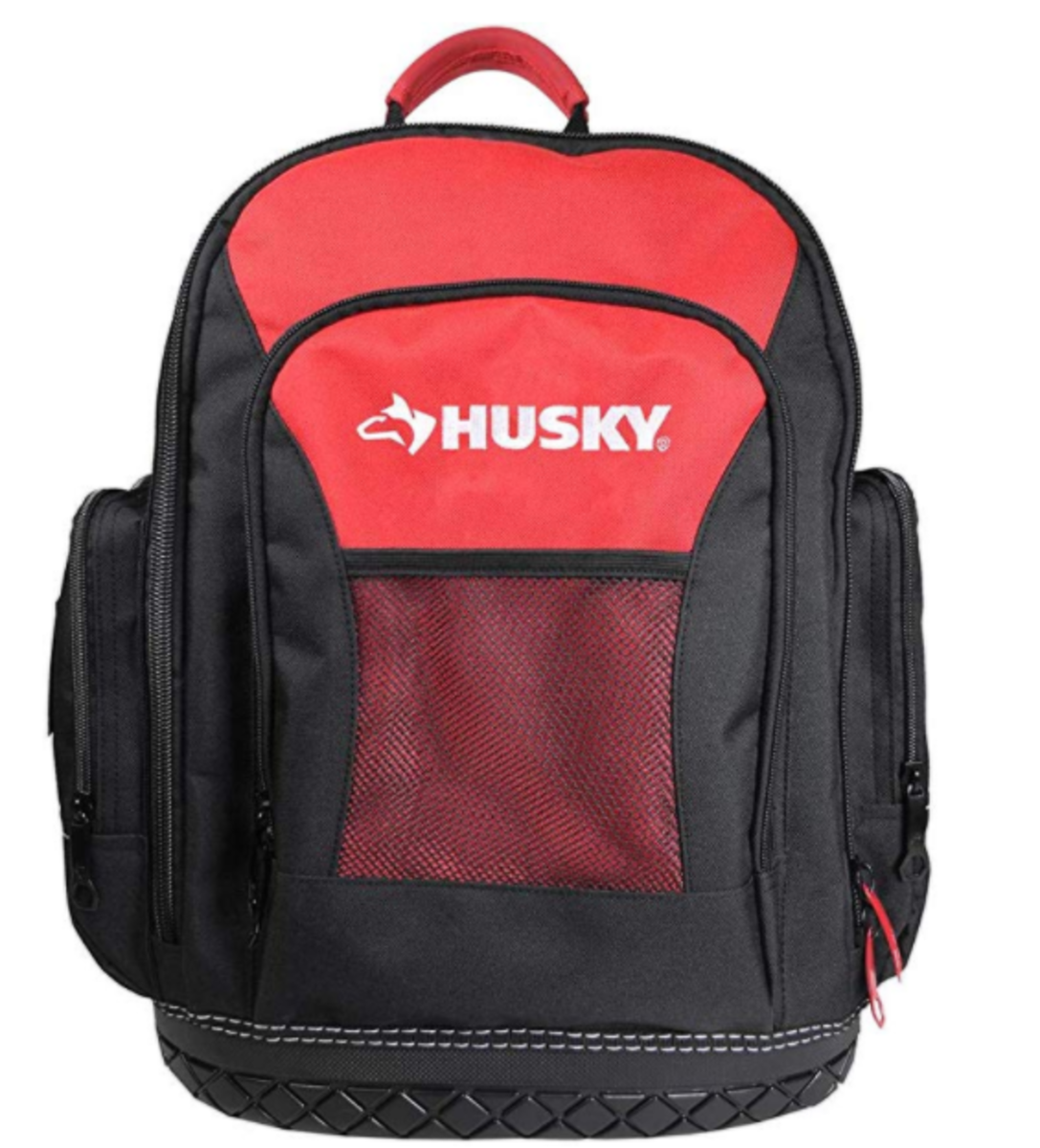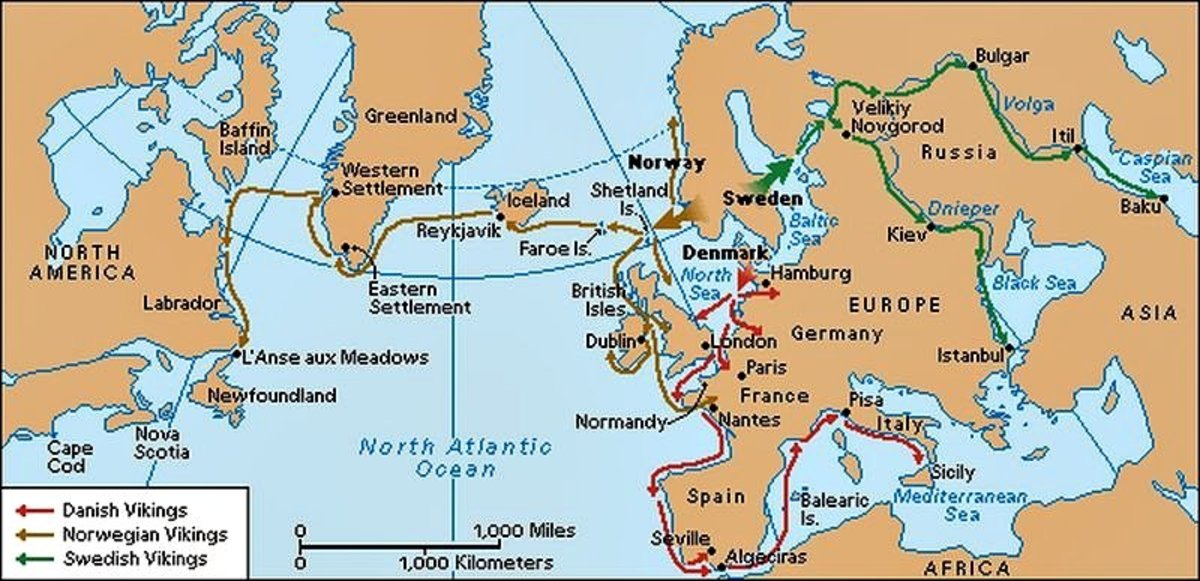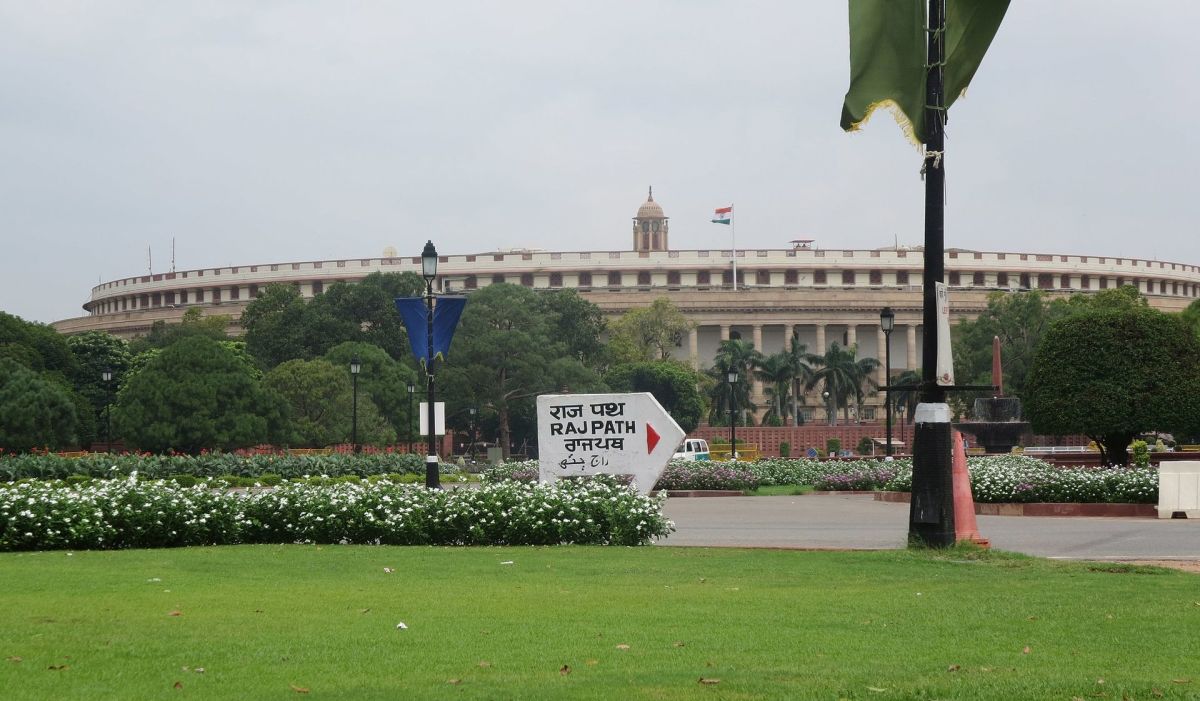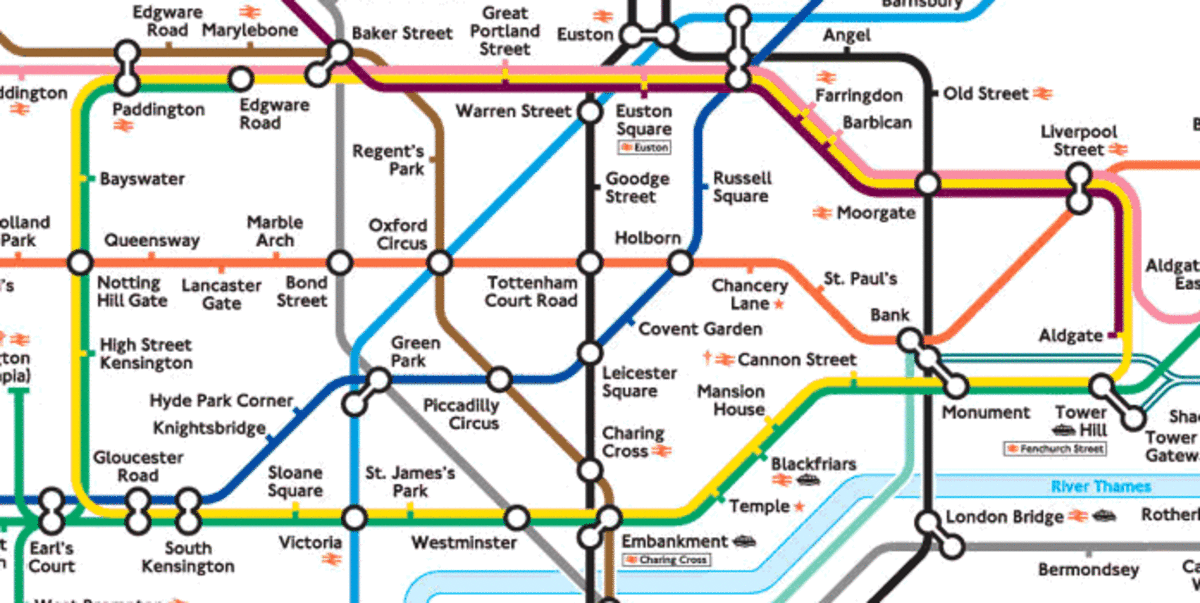How To Travel To Europe for Cheap
Going to Europe on a Budget
When I was a freshman in college (eons ago in 2003) my roommate, her boyfriend and I found some killer deals on a website for plane tickets to London. We bought some backpacks, a train pass, and a lot of power bars and top ramen and headed off for two weeks around the British Isles.
By the time I was 23 I'd been to Europe 5 times (ok, 4 were trips to Europe and the last time was a long layover and daytrip in London on my to Africa, but it still counts right?). How have I gone so many times? I go the cheap way--no frills or fancies, just a backpack and some basic knowledge.
With today's economy suffering the way it is, airlines are practically giving plane tickets away. Allright maybe not that but a roundtrip ticket from NYC to London is much cheaper than it was a year ago! Check out Travel Zoo, Travelocity and Price Line for some great bargains.
This is the bare bones, and you can determine what is important to you to add on from there--maybe you prefer a real lunch instead of a power bar everyday but hey...that's just you! Not everyone is a crazy broke college student who decides to go to Europe multiple times! Just always remember that these experiences last a lifetime, so my first and foremost suggestion is keep a journal and take lots of pictures--even if you don't like to write and aren't a great photographer. You'll be glad you did a few years down the line. From here, I'll cover the basics of Getting to Europe on a budget.

Getting There
The biggest purchase for this trip is usually air travel. If you're a student, look at Student Universe or STA Travel. And don't try faking you're a student with an old ID--you have to fax a current class schedule to them. If you are not a student, keep an eye out for deals online. Spring and Fall are usually good times to travel or buy tickets. You can sign up for Travel Zoo for weekly updates on the top 20 deals. And if you want to go somewhere a little more out of the way than the major cities like London or Paris, consider a cheaper fare to that larger city and taking a smaller airline to your final destination. Easy Jet and Ryan Air are good airlines for hopping around the continent, but make sure you read their standards for luggage. I had a friend pay over $50 for having luggage that was too heavy--which isn't very smart if you're trying to travel for cheap!
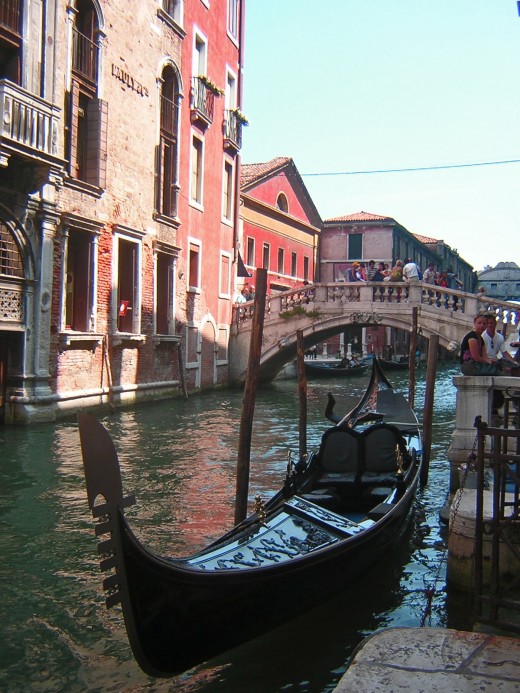
Getting It Together
How much you pack and how you pack it may not seem that important for you. Maybe you like to bring 3 outfits for every day, with multiple other options for moods or climate. Well, This all sounds nice and dandy, but when you travel budget style remember you're carting your own stuff around--no bellboys to tip, remember?
The very first time I went to Europe was a trip to Romania and I made the mistake of packing a large suitcase in the vicinity of 45 pounds. It was on wheels, so I deemed I'd be fine. Wow, was I wrong. I had to lug that thing everywhere--up flights of stairs, in and out of buses and trains, and let me tell you the wheels weren't much help there.
My favorite thing to pack in since then is my Gregory Deva backpack. I've had mine since 2003 and used it for both urban and backwoods backpacking and have no complaints at all. Make sure you get fitted for the right pack for your body--REI is great at helping you find what you need to fit your needs.
The benefits of a backpack are multifold. First, it frees up your hands as you're headed to your new destination for taking pictures, eating, or whatever. Second, when you're hopping on a train or bus, its much easier to throw your pack in a seat and sit next to it than finding the luggage bin. You can keep a better eye on your things, especially if you're in a sketchy place. Finally, when traveling by air, depending on the size of your backpack you can usually carry it on. This is helpful because you know the airline can't lose your luggage, and you can get off the plane and go. Also, with most airlines starting to charge for your FIRST bag you check, a carry-on is a major plus--especially if you'll be plane hopping!
Now, since you're going to be carrying around your stuff like a turtle, you want to keep it relatively light (your feet will kill you if you carry 50 pounds on your back all over Paris). Here are a few suggestions:
Pack only one pair of jeans, or none at all. Jeans are heavy, and hard to wash by hand if you're going to be gone longer than a week. While a staple of many outfits, try to limit yourself to only one pair and pack cotton or polyester pants, shorts, or skirts.
If you stay in a hostel, you'll need your own towel--which can take up a lot of room. Instead, I packed a small travel towel and a sarong (or lava lava, as they're known in Hawaii). The travel towel worked great for my hair, and the sarong dried everything else and then dried quick because it was so light. It also served as a coverup to and from the bathrooms after a shower.
Bring a small fleece blanket with you--it can serve as a pillow, cusion, or extra warmth if you find yourself camping overnight in a train station.
Also, to pack less clothes (like underwear and socks), bring some small packets of Woolite and a travel clothesline and you can wash and dry your stuff every few days or so.
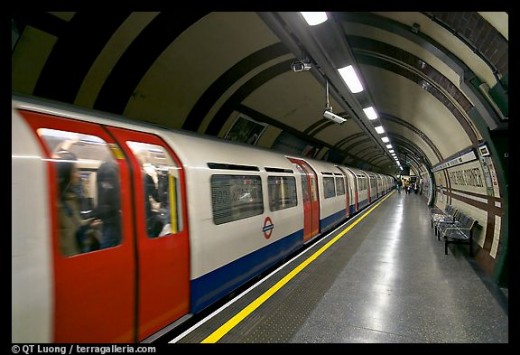
Getting Around
Once you get to Europe--whatever metropolitan or quaint village you decide to visit, there are a number of options for getting around. A popular choice is by rail. You can purchase student priced rail passes at Rail Europe or at one of the student travel websites. We did this and got the BritRail Flexipass and it worked out great. It even included our ferry to and from Ireland. We had the freedom to have a couple of extra days to explore small towns in Ireland and Scotland, while still making our way to the major cities around the isles. Keep in mind you don't always have to purchase these in advance, msot often you can show up, buy a ticket and hop on a train--just check prices and get an estimate in your head in advance.
Another option are bus passes, which can be purchased there. These are great for around the city, or to locations just outside major cities, and they are usually pretty cheap.
If you're in one of the major cities, I'd recommend getting a pass for the London Tube, Parisian Metro, Rome Metro, or whatever is their main form of commuting. If you're going to be there for a few days, a pass is cheaper than a one time ticket for each time you ride.
What I DON'T suggest is taking taxis--not only are they expensive but since you are a foreigner they usually try to rip you off.
What I DO suggest is using your feet. Europeans are on average more healthy than Americans and a big reason for that is they do a lot more walking. Us? We drive half a mile to McDonald's for lunch. So make sure you own some comfortable walking shoes and see the cities at a slower pace--you'll absorb so much more of the culture, too!
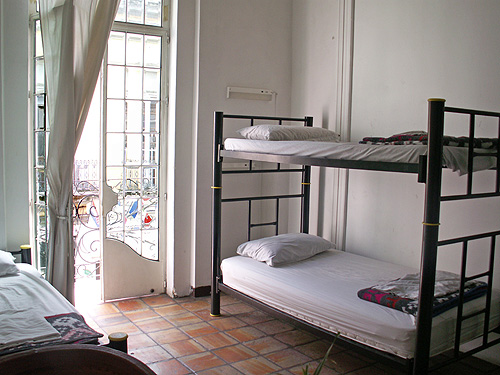
Getting Some Rest
One of the other major expenses on your trip will be where you stay. Now, if you're thinking the Hilton close to the Eiffel Tower then watch your money go bye bye. Plus I've stayed in both hostels and hotels in Europe, and honesty I'd rather save money and have a few roommates. The only real advantage in a hotel is the privacy of your own bathroom (and sometimes you can still get that in a hostel). Other than that the rooms are on average much smaller than you'll be used to coming from the States,
If you're looking at staying in hostels, Hostel.com and Hostel World are great resources. If you travel in the off season you can probably show up and find an empty bed. But if you travel in the summer or with a larger group, you might want to make reservations. Make sure you have a printout of your reservations, though, in case their books say something different. This only has happened to me once and in proving we had indeed purchased beds for the night, they taxied us to their sister hostel which was nicer, and gave us free food.
And if you hear the word hostel and think of dirty places or the movie then try looking at some pictures online. Nowadays hostels have upgraded and are quite nice. Many offer complimentary breakfast and internet, and if you like your privacy you can get a private room that's still cheaper than a hotel.
Getting Some Grub
This is always a hard issue for me because part of experience the culture of a place is eating their food. However, eating out a LOT can get pricey, even if you eat cheap.
My solution is to do a half and half. Usually breakfast is covered by the hostel, or I grab something at a little cafe. In Scotland we had a cafe we went to four mornings in a row and it was great getting to know the people there. For lunch I would go very light--if you're in the British Isles a lot of times pubs offer lunch specials. Or you can even bring or buy your own food.
Yes you heard me. Power bars, beef jerkey, dried fruit, and even top ramen can become lunch and snack staples. You can buy these in the states before hand (if you're traveling light so you're not carrying a ton), or stop in a grocery store wherever you're at. I always like going in the grocery stores anyways and seeing what's the same and what's different. And a loaf of bread and some peanut butter can go a long way!
Now for dinner...dinner is where I like to experience. Splurge a bit if you will. Try something new, something scary, something you can't pronounce. You've got beef jerky just in case you don't like it, remember? Take pictures of your food. Sounds silly, I know, but I had this one meal that I know was delicious in Northern Ireland and for the life of me I can't remember everything that was on that plate.
You'll save a lot of money by the half and half rule--one cheap meal one moderate meal. Don't starve yourself but know you might break the bank if you eat at a steakhouse like restaurant every night.

Get the Facts
Even if you're like me and you like to wake up and decide what to do on that day rather than having a predetermined schedule, you still should research the place you're going. Knowing the main sightseeing locations, prices of admission if there are any, and the times and days they are open will give you more freedom in your travels. A lot of museums are free, but then the price of admission to places like the Tower of London or the Colisseum are more than you'd like to pay.
So do your homework, figure out what's the most important for you to see and do, and go from there. And don't forget to ask locals where they like to go and eat or do--you might make some great new friends in the process!



